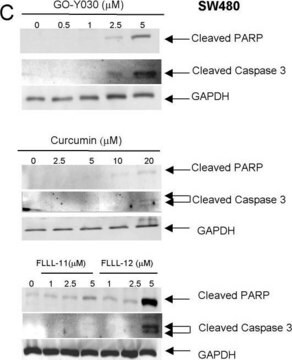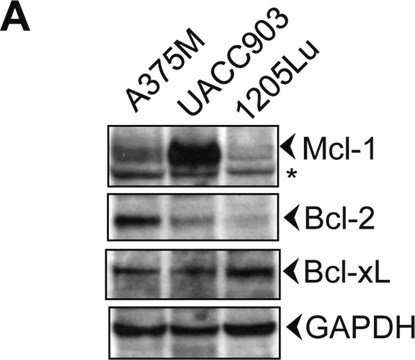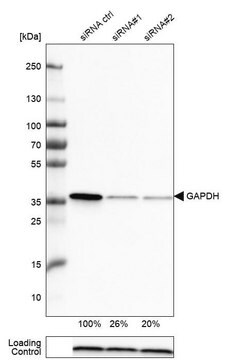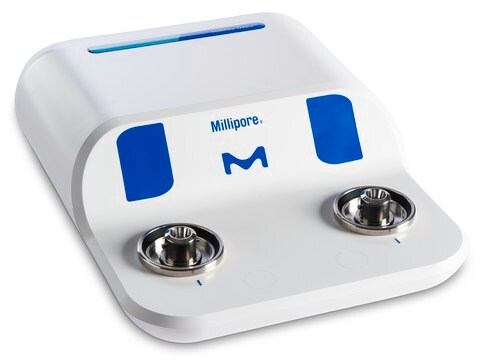MAB374-AF488
Anti-GAPDH Antibody, clone 6C5, Alexa Fluor™ 488 conjugate
clone 6C5, from mouse, ALEXA FLUOR™ 488
Synonyme(s) :
Glyceraldehyde-3-phosphate dehydrogenase, GAPDH, Peptidyl-cysteine S-nitrosylase GAPDH, GAPDH
About This Item
Produits recommandés
Source biologique
mouse
Niveau de qualité
Conjugué
ALEXA FLUOR™ 488
Forme d'anticorps
purified antibody
Type de produit anticorps
primary antibodies
Clone
6C5, monoclonal
Espèces réactives
mouse, human
Réactivité de l'espèce (prédite par homologie)
cat (based on 100% sequence homology), fish (based on 100% sequence homology), canine (based on 100% sequence homology), porcine (based on 100% sequence homology), rat (based on 100% sequence homology), rabbit (based on 100% sequence homology)
Technique(s)
immunocytochemistry: suitable
Isotype
IgG1
Numéro d'accès NCBI
Numéro d'accès UniProt
Conditions d'expédition
wet ice
Modification post-traductionnelle de la cible
unmodified
Informations sur le gène
human ... GAPDH(2597)
mouse ... Gapdh(14433)
rabbit ... Gapdh(100009074)
Description générale
Spécificité
Application
Qualité
Immunocytochemistry Analysis: A 1:100 dilution of this antibody detected GAPDH in A431 cells.
Description de la cible
Forme physique
Autres remarques
Informations légales
Vous ne trouvez pas le bon produit ?
Essayez notre Outil de sélection de produits.
Code de la classe de stockage
12 - Non Combustible Liquids
Classe de danger pour l'eau (WGK)
WGK 2
Point d'éclair (°F)
Not applicable
Point d'éclair (°C)
Not applicable
Certificats d'analyse (COA)
Recherchez un Certificats d'analyse (COA) en saisissant le numéro de lot du produit. Les numéros de lot figurent sur l'étiquette du produit après les mots "Lot" ou "Batch".
Déjà en possession de ce produit ?
Retrouvez la documentation relative aux produits que vous avez récemment achetés dans la Bibliothèque de documents.
Notre équipe de scientifiques dispose d'une expérience dans tous les secteurs de la recherche, notamment en sciences de la vie, science des matériaux, synthèse chimique, chromatographie, analyse et dans de nombreux autres domaines..
Contacter notre Service technique






